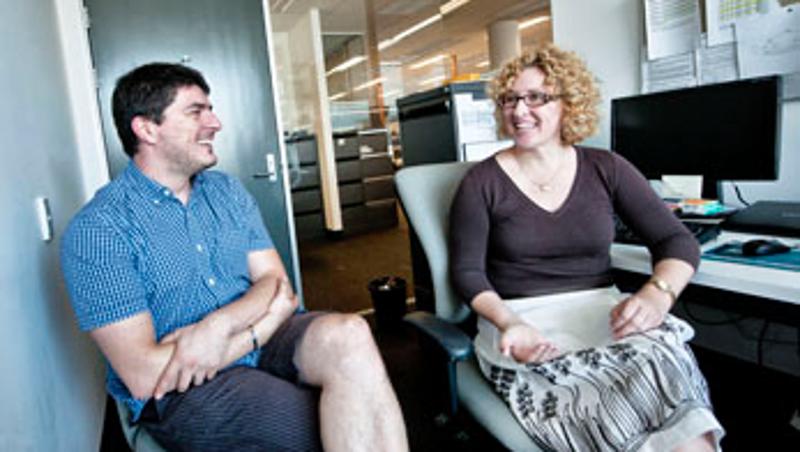
As American Idol premieres to millions of viewers worldwide for its eleventh season in January, Queensland University of Technology (QUT) researchers have some advice for contestants: perform last.
QUT researchers Dr Lionel Page and Dr Katie Page conducted a statistical analysis of 1522 performances over 165 Idol shows in the USA, Australia, Brazil, Canada, Germany, India and the Netherlands and the UK's X-Factor.
They found that even after accounting for a contestant's talent, those who performed later in the Idol show had an advantage over other contestants.
"We found that the order contestants performed mattered," Dr Katie Page, from QUT's Faculty of Health, said.
"It's much better to go last. The later a contestant performs in a show, the more likely they are to not be in the bottom two in the following round."
The researchers found there was a significantly higher likelihood that contestants who performed last would avoid the elimination round than could be expected by chance alone.
The study, conducted on shows from 2003 to 2007, also found that contestants who performed first were more likely to be judged favourably than those who went second or third, which were found to be the worst positions to perform.
Dr Lionel Page, a postdoctoral fellow from QUT Business School, said the sequential bias came down to memory.
"To get a positive vote, you need to think about the contestant's performance. But if they performed in the middle of a group or towards the beginning, it's harder to remember them," he said.
"It's a very significant effect. In the earlier rounds it's particularly strong because there aren't any favourite contestants yet.
"As the show progresses, the favourite contestants are likely to be safe regardless of the order they perform in. But for lower candidates, performing last can make a big difference."
The researchers also found that contestants were more likely to be judged poorly if they followed a bad performance than a good one.
"Our results indicate that judges tend to assess performances based on similarities with the previous contestant and not differences," Dr Lionel Page said.
"If you perform after a weak contestant there is a bias. You are more likely to be evaluated poorly than if you perform after a strong contestant."
Dr Katie Page said the couple, who are married, came up with the idea for the study after watching the popular television series.
"We wanted to know whether or not there are any biases and, as it turns out, there are," she said.
"It's not a phenomenon specific to America or Australia. It happens in every country with an Idol series."
The research supported previous studies which found that other sequential judged competitions such as ice skating, piano and the Eurovision Song Contest had similar biases.
American Idol premieres in the USA on January 18 and 19, and in Australia on pay TV on January 22.
RELATED ARTICLES
Brisbane Climate Change study warns of many years of life lost
Media contact: Stephanie Harrington, QUT media officer, 3138 1150, stephanie.harrington@qut.edu.au


